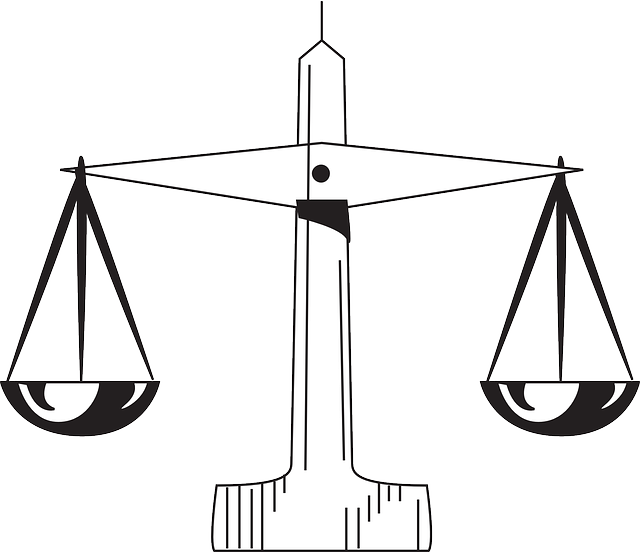In UK court proceedings, accurate translations of litigation documents like witness statements, legal briefs, and evidence are crucial for justice and fairness. Professional translation services specializing in legal terminology and British English nuances are indispensable for legal firms and courts to avoid misunderstandings that could compromise case outcomes. These services ensure culturally and legally appropriate translations, facilitating complex cross-border cases and contributing to a robust, transparent judicial system. When selecting a translation service, prioritize expertise in legal translation, native speaker proficiency, adherence to ethical standards, and rigorous quality control processes. Successful integration of these services has underscored their vital role in ensuring accessibility, accuracy, and fairness in UK court cases.
In the intricate landscape of UK legal proceedings, reliable and accurate translations of litigation documents are paramount. This article delves into the critical role of professional translation services, highlighting their significance in ensuring fairness and accessibility during court cases. We explore key considerations for choosing providers, best practices to safeguard quality, and real-world case studies showcasing successful implementations. Understanding these aspects is essential for legal professionals seeking optimal UK translation services for complex litigation documents.
- Understanding the Importance of Accurate Translations in UK Court Cases
- The Role of Professional Translation Services in Legal Proceedings
- Key Considerations when Choosing Litigation Document Translation Providers
- Ensuring Quality and Reliability: Best Practices for Legal Translation
- Case Studies: Successful Implementation of UK Translation Services in Court
Understanding the Importance of Accurate Translations in UK Court Cases

In UK court cases, accurate translations play a pivotal role in ensuring justice and fairness. Litigation documents, including witness statements, legal briefs, and evidence, must be translated with precision to facilitate effective communication. Mistranslations can lead to misunderstandings, misinterpretations, and even legal complications, potentially compromising the outcome of the case. For this reason, reliable translation services are indispensable for all parties involved—from legal firms to courts—ensuring that every document is conveyed with accuracy and context.
When it comes to litigation documents in the UK, specialized translation services are crucial. They employ translators who not only possess expert knowledge of legal terminology but also understand the nuances of British English. This expertise guarantees that translations are not just word-for-word but culturally and legally appropriate, preserving the integrity of the original content. By leveraging these professional services, legal professionals can navigate complex cross-border cases seamlessly, fostering a robust and transparent judicial system.
The Role of Professional Translation Services in Legal Proceedings

In legal proceedings, especially within the complex landscape of UK court cases, accurate and reliable translation services play a pivotal role. Professional translation is crucial for ensuring that all litigation documents are comprehended correctly, protecting the integrity of evidence and witness statements, and facilitating fair access to justice for all parties involved. With the sensitivity and technical terminology inherent in legal texts, human translators who possess expertise in both language and law are indispensable.
UK translation services specializing in legal contexts offer a vital service by providing native-speaking translators who understand not just the words but also the nuances and cultural subtleties of the language. This is particularly important when dealing with foreign language documents that need to be translated into English for use in UK courts. These professional services ensure that all parties, regardless of their linguistic background, can fully participate in and contribute to the legal process, promoting transparency, equality, and ultimately, the fairness of the judiciary system.
Key Considerations when Choosing Litigation Document Translation Providers

When selecting a translation service for litigation documents in the UK, several key considerations come into play to ensure accuracy and reliability. Firstly, expertise in legal translation is paramount as it requires specialized knowledge of court procedures, terminology, and case law. Providers should have experienced translators who are native speakers or possess a deep understanding of both the source and target languages. This ensures that complex legal concepts are conveyed precisely.
Another crucial aspect is compliance with ethical standards and confidentiality agreements. Litigation often involves sensitive information, so choosing a provider with robust security measures and a proven track record of maintaining client confidentiality is essential. Additionally, understanding their translation process—including quality control measures, proofreading, and the use of memory tools to maintain consistency—will give you confidence in the final product.
Ensuring Quality and Reliability: Best Practices for Legal Translation

Ensuring quality and reliability in legal translation is paramount, especially for complex court cases in the UK. When dealing with litigation documents, every word counts, and accuracy can make a significant difference in case outcomes. Reputable UK translation services invest heavily in maintaining high standards through rigorous best practices.
These include employing professional translators with extensive legal expertise, often possessing qualifications like CJL (Certified Legal Translator). They also employ advanced tools like machine translation, but human review remains crucial to catch nuances and ensure cultural relevance. Additionally, strict quality assurance processes involve multiple checks and balances, from initial assessment to final delivery, guaranteeing error-free translations that accurately convey the intended legal meaning.
Case Studies: Successful Implementation of UK Translation Services in Court

In recent years, the successful integration of UK translation services within court cases has highlighted their pivotal role in ensuring accessibility and accuracy. These services play a crucial part in facilitating fair trials by enabling judges, lawyers, and juries to comprehend litigation documents in languages other than English. For instance, in a high-profile case involving an international business dispute, a reputable translation company provided instant, precise translations of complex legal documentation. This ensured that all parties involved could follow the proceedings closely, fostering a sense of transparency and justice.
The implementation process typically involves meticulous preparation. Translation specialists carefully study court documents, accounting for legal jargon and cultural nuances. They employ advanced tools to guarantee accuracy while adhering to strict deadlines. Moreover, continuous feedback from legal professionals helps refine translation methodologies, making them increasingly efficient and reliable. This case study demonstrates how UK translation services can seamlessly contribute to the integrity of the judicial system, ensuring that every piece of evidence is comprehensible to all participants, regardless of linguistic barriers.
When it comes to UK court cases, reliable and accurate translations of litigation documents are paramount. Professional translation services play a crucial role in ensuring fairness and accessibility during legal proceedings. By carefully considering factors like provider expertise, quality assurance processes, and industry-specific terminology, legal professionals can choose the best-suited litigation document translation providers for their needs. Adhering to best practices guarantees the integrity of translations, fostering a robust and just judicial system in the UK.
